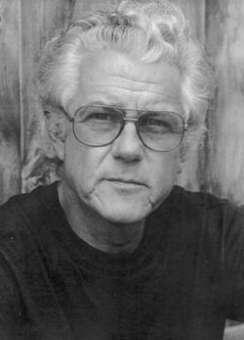I was a student of composer Hugh Aitken during my last two years at William Paterson College. He was primarily known to music students then as the teacher of "Form and Analysis," the third-year component of the music theory courses, and a notoriously tough grader, but was also a composer of note with significant professional successes in New York and elsewhere. I was lucky to become friends with him due to my interest in composition and had contacted him before classes began, and he offered to look over some of my music. I provided scores, and then he invited me for a walk on campus that went through wooded areas while he asked me questions about my work. I came to know that he was a great admirer of Beethoven, and that Beethoven would take many walks like this one, both alone and with students.

Hugh seemed brilliant and intellectually aggressive, but I also sensed that he was curious about me in a fatherly way, something I very much appreciated. I learned later that he had studied with noted composer Vincent Persichetti at the Juilliard School in New York, and then had taught there for twenty years in the Literature and Materials of Music program. He retained significant ties to Juilliard as a professor at William Paterson.
The walk with Hugh happened during the first week of school in 1976. Then, in class on the first day he shared that he organized the course and evaluated our work based on principles contained in three quotes, these first two are from Hegel:
"The true is the whole"
"Nature has neither shell nor kernel"
He invited us to ponder these before the next class, saying that he would give us the third quote sometime later in the semester. The ensuing discussion was stimulating, and is a testament to the staying power of these ideas that I have never forgotten the quotes.
Aitken liked to call his approach "holistic analysis" and
said that by analogy his course looked at music through a telescope, while Dr. Jeff Kresky's course
(my second year theory teacher, and also for private composition lessons) looked at music through a microscope. For
me both points of view were valid and invaluable in fostering my growth. And to be accurate, we all stared through the musical microscope many times during Hugh's class. The first piece we studied was the Sarabande from Bach's Cello Suite in C Major, and the assignment was to create a detailed formal diagram and harmonic analysis. We went on to study the Crucifixus from Bach's B Minor Mass, the opening of Haydn's Creation, Mozart's overture to The Marriage of Figaro, several Beethoven Piano Sonatas and Symphonies, Schumann's Dichterliebe, Wagner's Prelude to Tristan und Isolde, the Franck Violin Sonata, Stravinsky's Rite of Spring and the Schoenberg Opus 11 Three Pieces for Piano. All assignments required at least a detailed formal diagram and harmonic analysis, and we were required to write a paper on a piece of our choice. I was very taken by the 'wholeness' of this approach and the unity of the compositions, and Hugh often had us look through the musical telescope at the vast number of external connections that all of these compositions had with history, both musical and general.
He also shared a paper ("The Split Fifth") with me that included many of his ideas on musical analysis, and in 1997 published a book called "The Piece as a Whole: Studies in Holistic Musical Analysis" that is an expansion of the paper and an excellent and thought-provoking read.
Hugh did not give us the third quote directly, but hinted at it on the last day of class: three words found in Shakespeare's "King Lear," Act V Scene II. We rushed to look it up:
"Ripeness is all"
Regarding his toughness and rigor I came to understand that Hugh gave a lot of low grades because he expected students to do all the assigned work, and when they did not this was reflected in the final grade. I did my best to keep up and we got along well, and I've kept the quotes in mind about many pursuits and disciplines, as well as with life itself. He was a true artist, I feel that he enlarged my being and that I was fortunate to be his student.

